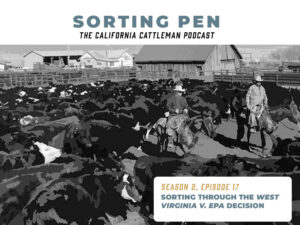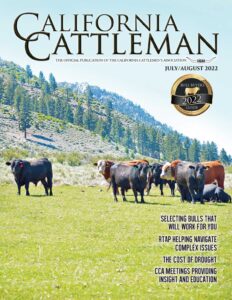
LEGISLATIVE BULLETIN
August 22, 2022
To read the full version each week, please subscribe below.
Gov. Newsom Releases End-of-Session Climate Priorities; Appoints New CalEPA Secretary
On August 12, Governor Gavin Newsom released a set of five “urgent proposals addressing climate change” which he urged the Legislature to take up “this year.”
Newsom’s climate priorities heavily target oil and gas, such as banning new oil extraction near homes, schools and parks and creating interim clean-energy targets as California seeks to ultimately achieve “100% clean electricity” by 2045.
The Governor would also like to see California adopt more ambitious 2030 greenhouse gas emissions (GHG) reductions. Current law commits the state to reducing GHG emissions to 40% below 1990 levels by 2030; Newsom would like to see emissions reduced to 55% below 1990 levels within the next eight years, instead. The Governor would also like to see “a clear, legally binding, and achievable goal for California to achieve statewide carbon neutrality…no later than 2045.”
Finally, Newsom has urged the Legislature to establish a clear regulatory framework for carbon removal and carbon capture, including development of “an achievable carbon removal target for natural and working lands” (a CCA-opposed bill that would have mandated unrealistic levels of carbon sequestration on natural and working lands failed to advance out of the Senate Appropriations Committee earlier this year).
Despite the Governor’s insistence that “California isn’t waiting a minute longer” to achieve these priorities, as of press time, no legislator has agreed to carry Newsom’s bills – and the Legislature only has until next Wednesday to act on legislation.
In related news, Governor Newsom has named Amelia Yana Garcia Gonzalez to lead the California Environmental Protection Agency (CalEPA) – the agency which regulates California’s GHG emissions – when its current Secretary, Jared Blumenfeld, departs the agency next month. In her time at CalEPA, Garcia Gonzalez has focused on environmental justice issues and tribal affairs. Her appointment to the post requires Senate approval.
SWRCB Issues Updates on Water Rights Curtailments in the Sacramento-San Joaquin Delta Watersheds
As of Wednesday, several curtailments have been updated within the Sacramento-San Joaquin Delta watersheds, subwatersheds and tributaries.
Appropriative water rights in the Sacramento River watershed have been curtailed outside of the Legal Delta with a priority date of 1904 or later. Water rights on some Sacramento River tributaries have been further curtailed, including appropriative water rights for the Cache Creek subwatershed with a priority date of 1880 or later and the Yuba River subwatershed with a priority date of 1875 or later.
In the San Joaquin River watershed, all appropriative water rights outside of the Legal Delta with a priority date of 1900 or later have been curtailed. Additionally, all appropriative and riparian water rights claims from the Calaveras River, Chowchilla River and Fresno River subwatersheds have been curtailed, as have appropriative water rights within the Merced River subwatershed with a priority date of 1859 or later and within the Mokelumne River with a priority date of 1890 or later.
The above curtailments are expected to continue through summer and the beginning of fall, depending on precipitation.
For questions about curtailment and suspension notices or how to comply, please contact the Rancher Technical Assistance Program at (916) 409-6902 or rtap@wrstrat.com.
CCA-Sponsored Bills Await Governor’s Action
Two CCA-sponsored bills advanced out of the Legislature earlier this month and have been presented to Governor Newsom for final approval. CCA-sponsored AB 2415 (Lackey) passed would extend by three years the agricultural vehicle exemption to the California Highway Patrol’s Basic Inspection of Terminals program. CCA-sponsored SB 880 (Laird) would permanently authorize University of California Cooperative Extension water measurement instructional courses which enable ranchers who divert more than 100 acre-feet per year to self-certify as “qualified individuals” for purposes of installing and maintaining their own water measurement devices.
Both bills passed out of the Legislature without taking a single “no” vote and without any opposition from advocacy groups. For additional details on these bills and CCA’s other legislative priorities, see last week’s Legislative Bulletin; an end-of-session legislative recap will also appear in the November edition of California Cattleman.
California’s Water Supply Strategy Portfolio Released
Earlier this month, Governor Newsom released “California’s Water Supply Strategy: Adapting to a Hotter, Drier Future.” Given that California’s water supply is expected to diminish by 10% by 2040, the Strategy builds upon the Administration’s 2020 Water Resilience Portfolio to increase existing water storage and develop new water supply sources. Specifically, the Strategy seeks to develop 828,000 acre-feet of new water supply through recycling and desalination, augment existing reservoir and groundwater storage by 4 million acre-feet and reduce urban water demand. For more details on California’s Water Supply Strategy, see last week’s edition of Legislative Bulletin or contact Kirk Wilbur in the CCA office at kirk@calcattlemen.org.
FSA Adjusts Livestock Indemnity Program Payment Rate for Cattle Under 250 Pounds
USDA’s Farm Service Agency (FSA) recently updated its Livestock Indemnity Program (LIP) payment rates for non-adult beef cattle under 250 pounds. The revised rate – $474.38 – aligns payment rates for calves under 250 pounds with those for calves weighing between 250 and 399 pounds. A full LIP factsheet is available here. Additional details are available in last week’s edition of Legislative Bulletin or by contacting your county FSA office (the contact information for which can be found here).
Inflation Reduction Act Signed into Law; Includes Investments for Ag
On Tuesday, President Joe Biden signed into law the Inflation Reduction Act. The legislation includes roughly $40 billion in agricultural investments, including $5 billion allocated to the U.S. Forest Service to undertake fuels reduction and carbon sequestration activities on USFS lands, $20 billion for environmental stewardship programs administered by the USDA’s Natural Resources Conservation Service and $4 billion for drought resilience and water supply projects to be undertaken by the federal Bureau of Reclamation. For additional details, see the August 8 edition of Legislative Bulletin.
2022 CCA Internship Applications Now Available
Internship applications are open for the 2022 CCA/CCW Convention happening Nov. 30 – Dec. 1 at the Nugget Casino Resort in Sparks, Nev. Selected interns will help run CCA’s tradeshow booth, onsite registration and other behind the scenes tasks at the event, they will also get to attend select meetings of interest, general sessions and the tradeshow with complimentary lodging and registration. Additionally, the interns will get to interact with CCA leadership and staff, as well as industry leaders at the best attended meeting of the year. To apply please send a resume and cover letter to Maureen LaGrande at maureen@calcattlemen.org by Monday, October 10, 2022, at 11:59pm PST. Applicant must be a young, regular or feeder member of the California Cattlemen’s Association and must be a current undergraduate, master, school of law or veterinary student attending or enrolled in a junior college, four-year college, university or law school (high school students are not eligible). Learn more about the event at calcattlemen.org/convention2022.
2022 CCA Scholarship Applications Now Available
Applications for the 2022 CCA Scholarships are being accepted now through October 1, 2022. CCA awarded $63,000 in scholarships to students studying agriculture, although scholarship amounts and quantities vary year to year. Current CCA members (producer, feeder or YCC) that are currently enrolled at a university or college are eligible to apply. Past recipients of her CCA scholarship program may also apply again this year. For a complete list of awards and to download the application visit calcattlemen.org/scholarships. Contact Maureen in the CCA office at maureen@calcattlemen.org with any questions.
Upcoming CCA Events
106th Annual CCA & CCW Convention
Nov. 30 – Dec. 1, Nugget Casino Resort, Sparks, Nev.
The 2022 CCA/CCW Convention is headed back to the Nugget Casino Reno and will be held in conjunction with the Nevada Cattlemen’s Association’s Annual Convention. Attendee and exhibitor registration for the event are now open! Register and get more information at https://calcattlemen.org/convention2022. Click the links below for more resources related to the event.
Reserve Your Tradeshow Booth Now | Sponsorship Opportunities | Apply to be a Convention Intern | CCA Scholarship Applications Due Oct. 1.
Upcoming Industry Events
Working Rangelands Wednesdays Webinars
June 29 – Sept. 7, Virtually
Join UC Cooperative Extension advisors, specialists, researchers and ranchers for a biweekly summer webinar series highlighting applied, land manager-oriented solutions for rangeland drought challenges. Webinars will air biweekly from 6pm to 6:45pm. Click here to register and receive a link to the following scheduled webinars.
August 24: Irrigating with limited water
September 7: Fall/Winter Forecast and Remote Sensing
California Department of Food and Agriculture Listening Session “The Next Farm Bill”
August 10 – September 7, Virtual and in Person
Join in on the California Department of Food and Agriculture listening sessions for the 2023 Farm Bill. For more information regarding the Farm Bill, click here.
August 23: Fresno, Live Only
September 7: Live Only
Public Lands Council Annual Meeting
August 24-26, Cody, Wyoming or virtually
Come join the Public Lands Council for their Annual Meeting in Cody, Wyoming. A virtual option is available for those who can’t attend in person. The meeting will cover an array of topics including current issues, panel discussions and much more. To register for the event, click here. Click here to see the agenda.
Fall River-Big Valley Cattlemen’s Association “Sweet 16” Team Branding
September 4, 2022, McArthur, California
The Fall River-Big Valley Cattlemen’s Association will host their “Sweet 16” Team Branding in September. Entries are due by August 19, 2022. For more information and to enter email fallriverbigvalleycattlemen@gmail.com.
UC Davis Animal Science Bovine Artificial Insemination Clinic
September 12-14, UC Davis Feedlot and Beef Barn
The UC Davis Young Cattlemen’s Association will be hosting an AI Clinic taught by veterinarians from the UC Davis School of Veterinary Medicine. To register for the event, click here. Click here to see the flyer.
Industry News
The enemy within our industry Morning Ag Clips “Six months into my tenure as the President of the National Cattlemen’s Beef Association (NCBA), I have had the opportunity to travel and visit with fellow cattle producers from coast to coast.” To continue reading, click here.
California cows are leaving the state and that won’t help global warming The Press – Enterprise “Last month, Northview Dairy in Ontario sold nearly 3,000 cows to a farmer with properties in Kansas and Colorado. During a recent lunch break — after tearing down the rows of cow sheds that have paralleled a stretch of Haven Avenue for three decades — Northview dairy manager German Cisneros said the sale was the result of a combination of increasing regulations, high prices for cows, and a great offer from an Irvine company to turn the land into housing. To continue reading, click here.
Stalled U.S. Forest Service project could have protected California town from Caldor Fire destruction capradio “Before the Caldor Fire sparked one year ago this week — before its 150-foot flames devoured century-old ponderosa pines in California’s Sierra Nevada, and before it destroyed more than 400 of the 600 homes in Grizzly Flats — Mark Almer had a plan.” To continue reading, click here.
NCBA’s Environmental Counsel Mary-Thomas Hart discusses how a decision from the Supreme Court on West Virginia v. EPA is going to have broad impacts on how the EPA and other agencies can regulate and write administrative rules. Mary-Thomas also shares NCBA’s thoughts on the Inflation Reduction Act and about some pertinent pieces in it for cattle ranchers. Click here to listen.



